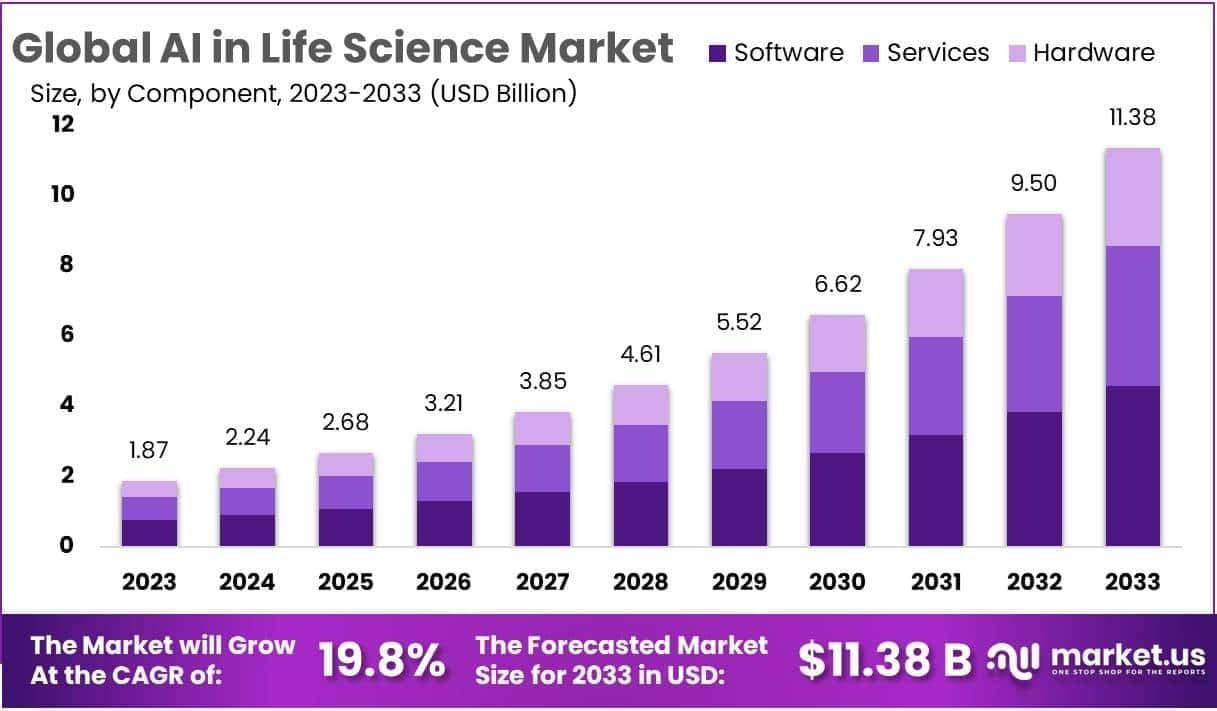The Global AI in Life Science Market is projected to reach USD 11.38 Billion by 2033. This marks a significant increase from USD 1.87 Billion in 2023. The market is expected to grow at a CAGR of 19.8% during the forecast period from 2024 to 2033.
The AI in Life Science Market is revolutionizing lab operations in 2025 through digital biology infrastructure and robotic automation. Laboratories are deploying AI-powered systems that automate experimental design, sample preparation, and data analysis. Robotic platforms use computer vision to monitor cell cultures and adjust conditions in real time. AI orchestration tools sequence experiments, measure outcomes, and iteratively refine protocols — essentially creating closed-loop labs that accelerate biological discovery.
These dynamics reduce human error, speed experimental cycles by 50%, and free scientists to focus on insights rather than routine tasks. As life science research transitions toward this Lab 4.0 vision, AI-enabled automation is becoming foundational to next-generation experimentation.
Click here for more information: https://market.us/report/ai-in-life-science-market/
Key Market Segments
By Component
- Software
- Hardware
- Services
By Deployment
- On Premise
- Cloud
By Application
- Medical Diagnosis
- Drug Discovery
- Precision and Personalized Medicine
- Biotechnology
- Clinical Trials
- Others
By End-user
- Pharmaceutical and Biotechnology companies
- Academic and Research Institutes
- Others
Emerging Trends
- Computer-vision-based monitoring of live cell cultures for automated quality control.
- AI protocols that design and adjust experiments in real time based on ongoing results.
- Robotic liquid handlers connected via AI orchestration platforms.
- Closed-loop lab strategies enabling automated hypothesis testing and analysis.
Use Cases
- A cell therapy lab uses AI vision to detect and correct contamination in culture vessels.
- Robotic handlers process CRISPR edits in parallel, with AI optimizing transfection parameters.
- Genomic labs deploy AI to schedule runs and automatically reanalyze low-quality samples.
- Biotech firms operate robotic biofoundries that refine microbial production of proteins overnight using AI feedback loops.


